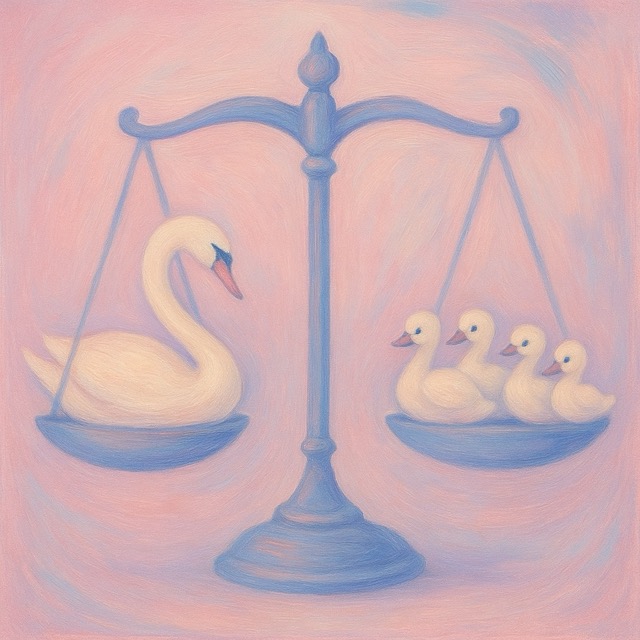Unsolicited Parenting Advice Is Just Projection in Disguise

📌 (And why only YOU know what’s best for your child.)
The second you become a parent, something weird happens: everyone suddenly thinks they have a PhD in raising your child.
It doesn’t matter if they have kids or not. It doesn’t matter if they’ve spent a total of 45 minutes around your child in their entire life. They will have thoughts. And they will feel the need to share them.
🗯️ “He needs more structure.”
🗯️ “You should really wake her up earlier.”
🗯️ “An hour on the computer? That’s basically neglect.”
And let’s be real—it’s exhausting. But here’s the truth: most parenting advice isn’t actually about your kid at all.

It’s Not Advice. It’s Projection.
People don’t give unsolicited parenting advice based on what your child needs. They give it based on what their parents told them they needed as a child.
That friend who insists “kids need structure”? She probably grew up in a strict household where sleeping in was “lazy,” and she had to be productive at all times. Maybe that’s what her parents decided she needed—not what actually worked for her.
That coworker who swears “kids need school”? He might not be able to imagine a world where learning happens outside of a classroom because his parents never questioned the system.
That relative who side-eyes your kid’s screen time? She’s probably battling her own guilt about productivity, because she was raised to believe rest is unearned.
They’re not talking about your child. They’re talking about their own upbringing. And instead of questioning it, they just assume it’s universal truth.
You Already Know What’s Best for Your Child—Because You’ve Lived It
Here’s what people don’t see when they swoop in with their opinions:
You didn’t just randomly decide to parent this way. You got here through experience. Through trial and error. Through actually listening to your child.
When someone tells me, “Your child needs to go to school,” or “She needs more structure,” I’ll admit—sometimes I pause. For a second, I think, Wait, maybe they’re right.
But then I remember: we already tried that.
We started with structure. The rigid bedtimes. The early mornings. The school schedule. Limited technology, because ‘screen = bad.’ And it was through those experiences that I learned what my child actually needed. I didn’t just wake up one day and decide to homeschool or create a different rhythm for us—it was something I arrived at after seeing firsthand what wasn’t working.
People look at our life now and act like this is how it’s always been—like I just refused to do things the “right way.” But no, we started with the structure they’re talking about. And we realized it wasn’t serving us.
Your Child’s Needs Are Unique—And Only You See the Full Picture
Maybe your child is on the spectrum. Maybe they have ADHD. Maybe they’ve been through major life changes—divorce, moving, trauma. Maybe you know what overstimulation looks like in your child because you’ve seen it, day after day, meltdown after meltdown.
And maybe you remember what it was like to be a child yourself.
If school was overwhelming and exhausting for you, why wouldn’t it be for your child? If you hated being forced to wake up at 6:30 AM every day, why would you assume that’s automatically good for them?
We have to stop assuming that the traditional way of raising kids is the correct way, just because it’s what most of us went through. Structure doesn’t look the same for every child.
Just because a schedule doesn’t look structured to an outsider doesn’t mean it isn’t. Some kids thrive with a strict daily routine. Some thrive with flexibility. Some kids need more alone time. Some kids need more sleep. You, as the parent, are the one who sees what actually works.
You Know Your Kid. Period.
Before we go any further, let’s be clear—this isn’t about situations where someone witnesses actual abuse or neglect. If a child is being harmed, speaking up is necessary.
This is about the everyday, mundane parenting choices that people feel the need to insert themselves into—things like screen time, sleep schedules, food choices 🥬, homeschooling, and play styles.
So here’s what you do the next time someone gives you parenting advice you didn’t ask for:
🌑 Pause. Instead of reacting, ask yourself: Is this actually about my child, or is this about their personal baggage?
🌒 Don’t absorb it. Just because someone says it with confidence doesn’t mean it’s true.
🌓 Remember the years that brought you here. You didn’t land on this parenting style by accident. You have evidence of what works.
🌔 Set a boundary. A simple “That doesn’t work for us” is enough. You don’t have to justify your parenting to anyone.
At the end of the day, only you are the expert on your child. And if someone doesn’t like the way you parent? That’s a them problem, not a you problem. 🌙





Responses